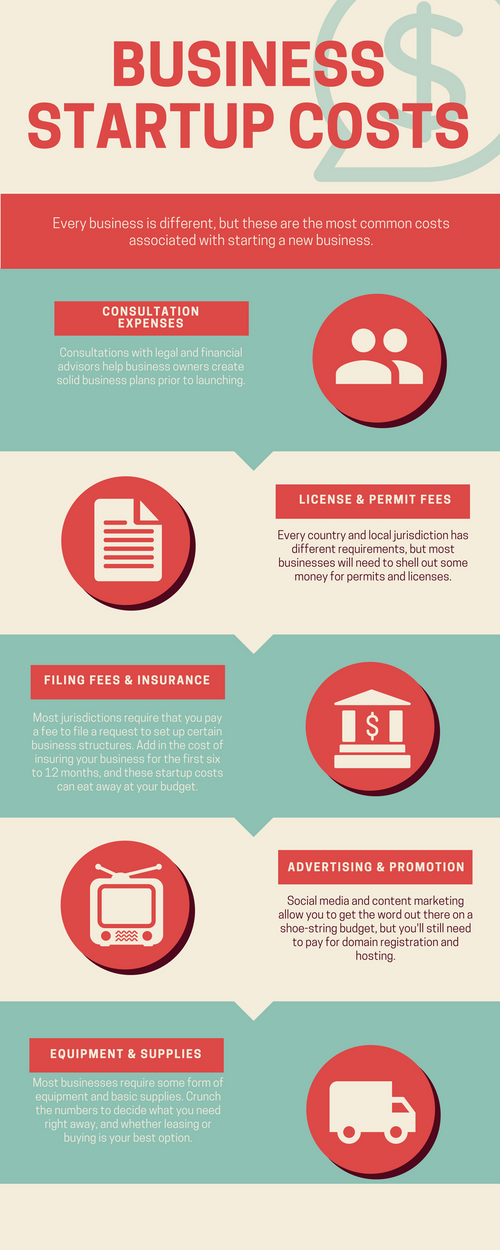Starting a new business requires a great idea and plenty of passion. But creativity and ambition only go so far. Getting your proverbial ducks in a row before you launch—nailing down your business’ structure, licensing, permits and financial plan—helps you avoid a lot of the common issues that cause a fledgling business to sputter out and fail before it gets off the ground.
Choose a business structure
The type of legal structure you choose for your new business impacts your tax liability, the financing options available to you and your personal liability. The following business structures tend to work best when you’re just starting out.
Sole proprietorship/sole trader
This option simply means that one person owns and operates the entire company. It tends to keep taxes simple and adds minimal paperwork to your workload. You can still hire employees (or utilize contractors), but you need to file taxes and tax documents for these employees. Drawbacks include a lack of funding options (it’s difficult to convince banks and investors to dump loads of money into a sole proprietorship/trader); and, you’re personally responsible for your business debt. Which means your personal assets can be seized in the event of a default.
Partnership
Very similar to a sole proprietorship and sole trader, a partnership structure lets you and other individuals own and operate the entire company together; however, you will need to set up a unique tax filing number for the partnership. You and your partners are fully liable for any debt accrued by the partnership, and it can be difficult to secure funding. In the U.S., you can include limited partners in a partnership, which indicates they’re investors only and won’t be held liable for a debt.
Limited liability companies/private company limited by shares/proprietary company
This structure affords you and your partners’ liability protection, ensuring that personal assets are not at risk should the company hit a financial bump in the road. And depending on the country, it may minimize your tax liability. However, every state, region and territory in a country may have different rules and restrictions. This is especially true in the U.S., where LLC laws and regulations vary by state, to the point that in some cases it’s advantageous to form an LLC in a state other than where you reside.
There are other options for structuring your business depending on your jurisdiction. Working with a business attorney helps you navigate these options and find the one that’s most beneficial to you personally, any partners you may have and your business’s potential for growth and success.
Determine which licenses and permits you need
Figuring out what type of work permits and licenses you may need to run your business might be more complicated than you think. Not only will your country have its own rules, but your state, region or territory, and your local town or city, all have their own laws and regulations as well. Pay for a detailed consultation with a business attorney in your town or city to determine which licenses and permits you need to start working.
Here are just a few examples of how licensing and permits differ around the globe:
- In the U.S., states that charge a sales tax require businesses to obtain a sales tax license if they sell taxable goods.
- In the U.K. and the U.S., some local councils and states require that you obtain a permit for running a home-based business.
- Certain provinces in Canada require permits for holding promotional contests where prizes exceed $100.
These government search tools and databases can help you find out what types of permits you may need. But remember—even the smallest village may have its own rules, so always consult with an attorney.
Nail down insurance
There are multiple types of insurance available to small business owners, some required by law and others that are optional. Here are some of the most common types of insurance you should consider:
General liability insurance (public liability insurance) protects your business from lawsuits brought on due to injury, death, emotional distress, property damage and consequential loss.
Commercial property insurance protects the building you run your business from, as well as the tools, equipment and inventory owned by your business.
Professional liability (professional indemnity) insurance covers you for any mistakes you make that cause a customer or client to experience financial loss.
Business income insurance replaces a portion of the income you lose when you’re unable to operate your business due to property loss. The cause of the property loss matters and not all situations are covered.
If you currently have an insurance agent or company that you use for your house, car or life insurance, reach out to them first. Even if your agent isn’t experienced in business matters, he or she likely has contacts within the same company who are. If you aren’t happy with your insurance company, or you want to shop around, talk to other entrepreneurs and business owners and ask for recommendations.
Open separate accounts for your business
Mixing business income and personal funds is one of the most common mistakes new business owners make. It makes it difficult to track spending and create a business budget, and it encourages the dangerous concept that all profits from your business equal income for you. At minimum, set up a checking and savings account specifically for your business. Then, check out these budgeting tips from Biz.me and our article on worthwhile accounting tools.
Hire an accountant certified in tax law
An experienced accountant who specializes in both tax law and providing financial advice for small business owners is worth his or her weight in gold. Depending on your country of residence, you’ll need to look for different certifications.
United States: Certified Public Accountant (CPA)
United Kingdom: Chartered Accountant
Australia: Australian Chartered Accountant
Canada: Chartered Professional Accountant (CPA)
As you can see, an accountant who’s certified in tax law and capable of providing financial advice uses a different certification nearly everywhere. Determine the highest-level accountant certification program in your country to find a qualified professional.
If hiring a professional isn’t in your budget, at least consider a consultation. Tax and business finance laws vary by jurisdiction. A consultation with an experienced professional will make it easier for you to learn the ropes on your own and avoid any financial missteps.
Explore all financing options available
Plenty of small businesses get off the ground with a few hundred dollars and a lot of blood, sweat and tears. But, if you’re developing products, need retail or office space, or need funding for equipment there are plenty of financing options out there.
Before you go down this road, work with a financial advisor to see what you need to get started and how much funding you’ll need to stay operational until you begin turning a profit. Then, look closely at your personal finances, including any equity available to you and your personal savings accounts. Determine how much of this you can reasonably use without putting yourself in a precarious financial situation. What that is will depend on your comfort level—Elon Musk saw fit to dump most of his personal funds from the sales of Zip2 and PayPal into Space X and Tesla, but the average person is slightly more risk-adverse.

Once you know what you can personally put into your business, subtract this from your total startup costs to find out how much, if anything, you need financing for.
Bank business loans and credit cards can be fantastic for businesses with smaller financial needs; however, tread carefully. If you’re already carrying a lot of debt, especially revolving debt, bank loans may be out of reach or come with too-high interest rates. Credit cards are also costly, and if used improperly could land you in a hole you won’t be able to dig yourself out of.
Angel investors, also known as seed investors, use their private funds to invest in startups. They’re typically found through networking and may work in your industry, be former business associates, other entrepreneurs or even family and friends.
Venture capitalists also provide funding, but they’re much more money-driven than angel investors. They typically want to see a profit within five years and tend to focus on companies in industries that grow rapidly, like technology, medical devices and commercial equipment.
Check out these sites to connect with angel investors and venture capitalists:
- AngelList
- Gust
- Angel Investment Network _Note: This site operates in multiple countries. Use the drop-down menu at the top left of the homepage to see if the site services your country. _
- Grow VC Group
Crowdfunding through sites like Kickstarter and Patreon is becoming more and more popular for small businesses; mainly, because it’s one of the cheapest financing options out there. Rather than paying off a loan with interest or giving equity to investors, crowdfunding allows you to set financing goals and tiers for donations that “pay” the investor back with a gift. For example, Oculus VR, maker of the Oculus Rift, used Kickstarter to fund a prototype. Anyone who donated at least $300 to their campaign received the prototype after the campaign was complete and the prototype was ready to send out. Understanding that a lot of people wouldn’t shell out that much money, Oculus VR also set up lower tiers with gifts for investors, including posters and T-shirts.
If you’re a little bit flustered after sifting through all of the above, take a breath, reset and reach out to people in your industry or small businesses in your area for advice and mentorship. They can help you decide who to work with, what you can handle on your own and offer invaluable advice as you get started and begin growing. And after a few years and some success, most of the stuff that seems overwhelming now will feel like second nature.
Biz.me is not affiliated with any business, product or influencer discussed or linked to in this post. We just like sharing great stuff. 🙂




